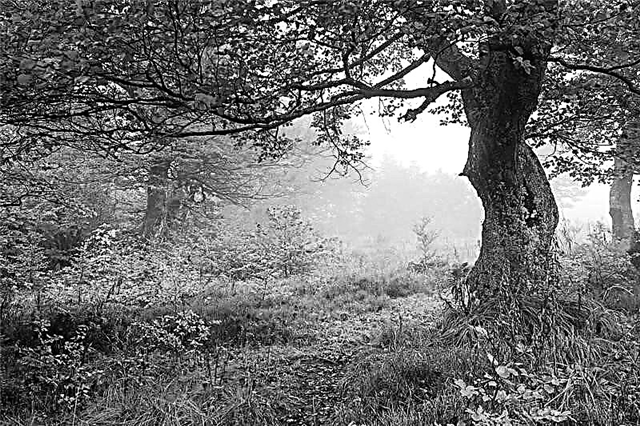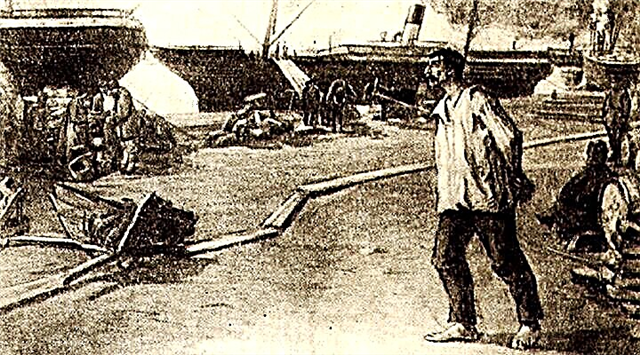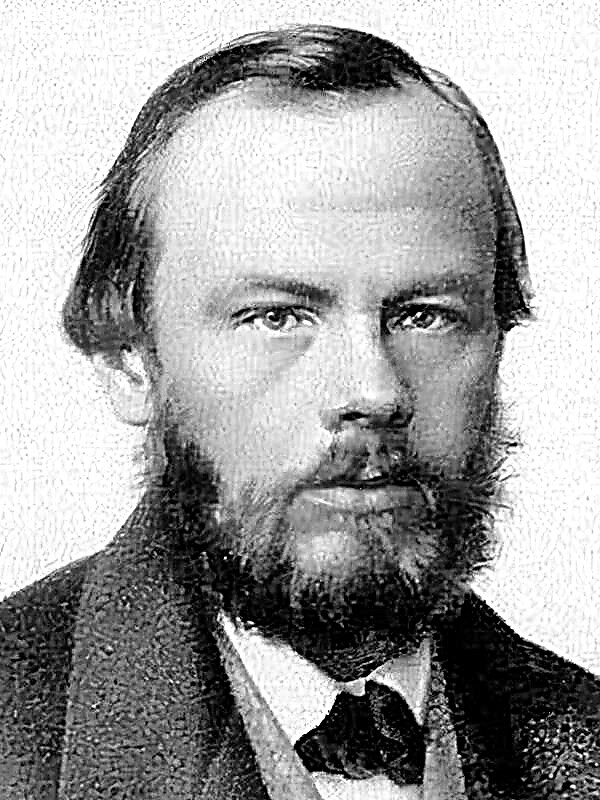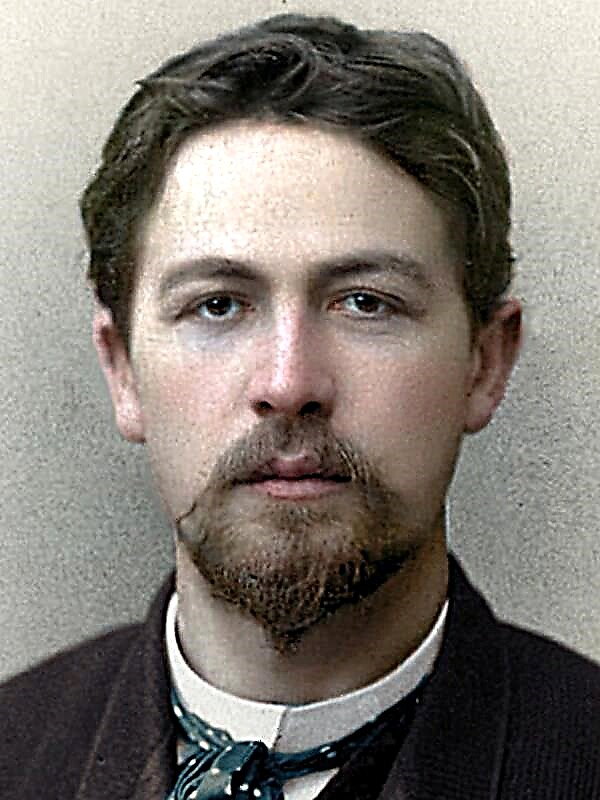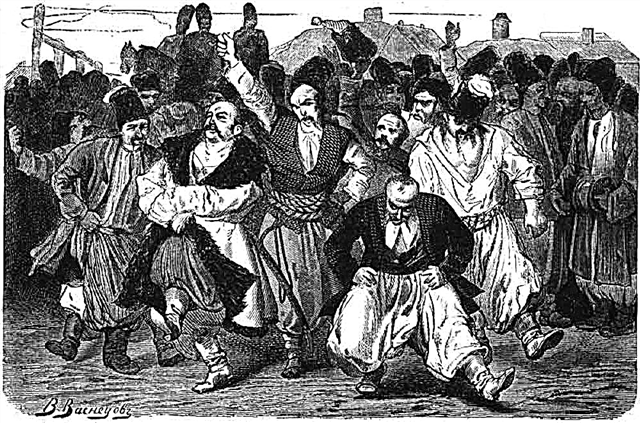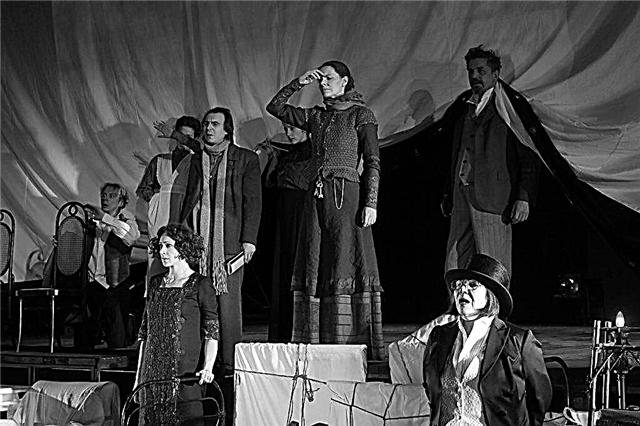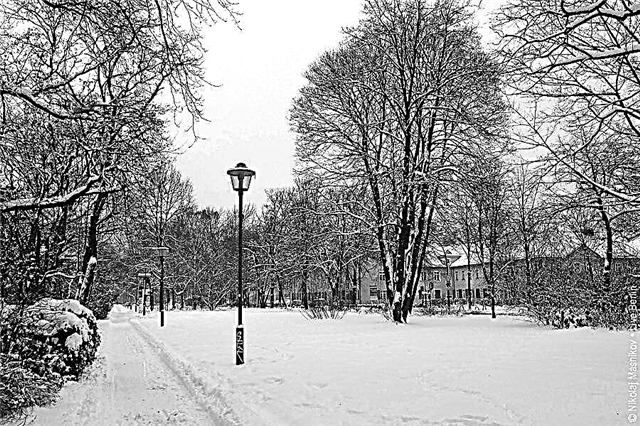The name of the novel echoes the name of the famous treatise of the French philosopher of the XVII century. Rene Descartes "The Discourse on Method." Carpentier, as it were, carries out a reverse interpretation of the concept of Descartes, carrying out the idea of the incompatibility of Latin American reality with rational logic, common sense.
The action begins in 1913, before the First World War, and ends in 1927, when the First World Conference against the colonial policy of imperialism takes place in Brussels.
The Head of the Nation - the president of one of the Latin American republics - spends carefree time in Paris: no important matters, audiences, receptions, you can relax and have fun.
He loves France, a cultural and civilized country where even the inscriptions on the subway cars sound like an Alexandrian verse. The President is an educated person, he is very well-read and, on occasion, does not mind flaunting a catchy quote, understands painting, appreciates opera art, likes to surround himself with the intellectual elite, is no stranger to patronage of arts.
In Paris, he prefers to indulge in a variety of pleasures, enjoy life. A drink-lover and frequent visitor to the fashionable Parisian brothels, at home, in his palace chambers, he is a model of abstinence, severely condemning the increase in the number of brothels and drinking establishments. His wife, Dona Ermenehilda, died three years ago.
In Paris, the father is accompanied by his beloved daughter, Ophelia, a lovely Creole, hot-tempered and stubborn, masterful and frivolous. She is busy collecting antique cameos, music boxes and racehorses. Her brother Ariel is an ambassador to the United States.
Another president’s son, Radames, having failed in exams at West Point Military Academy, became interested in car racing and died in an accident, while the youngest, Mark Anthony, a worthless and exalted dandy obsessed with genealogy, wanders around Europe.
A pleasant pastime disrupts the appearance of an excited ambassador, Cholo Mendoza, with the news that General Ataulfo Galvan rebelled, almost the entire north of the country is in the hands of the rebels, and the government troops lack weapons.
The Head of the Nation is furious: he found this officer in a provincial garrison, took him under his guardianship, put him into the people, made him Minister of War, and now the traitor tried to take advantage of his absence to take power, exposing himself as a defender of the Constitution, which since the war era has all rulers wanted to spit independence.
The president is urgently departing for New York, hoping to purchase the necessary weapons, and for this to give up banana plantations on the Pacific coast at a reasonable price to United Fruit United.
It should have been done for a long time, but all sorts of professors and other intellectuals opposed, denouncing the expansion of Yankee imperialism, but what can you do if this is a fatal inevitability, due both geographically and historically. There are no problems with the deal: the company does not lose anything during any course of events, the prudent Galvan, even before the start of the armed uprising against the government, made a statement to the press that the capital, land and concessions of the North Americans would remain intact.
Having returned to the country, the Head of the Nation is taken to clean up with an iron hand.
His anger is caused by a widely circulating manifesto, where it is announced that he seized power through a military coup, established himself in office through rigged elections, and extended his powers on the basis of an unauthorized revision of the Constitution.
According to the opposition, the man who could restore constitutional order and democracy is Luis Leoncio Martinez. the Head of the Nation cannot understand this at all: why did they choose the university professor of philosophy, a purely cabinet scientist who combined an addiction to free thought with an attraction to Theosophy, a militant vegetarian and admirer of Proudhon, Bakunin and Kropotkin.
Troops are thrown against students hiding at the university and rallying against the government. The Head of the Nation personally leads a campaign against the rebellious General Galvan, prevails and executes him.
We have to make a bloody massacre in Nueva Cordoba, where thousands of opponents of the regime united around Martinez. The president is forced to hurry with this, under pressure from the US ambassador, who is hinting at his country's intention to intervene and put an end to all anarchist and socializing elements.
The Head of the Nation is wounded in the heart by the black ingratitude of those for whom he worked day and night. Since the people do not believe in their honesty, disinterestedness and patriotism, they intend to leave their posts and assign their duties to the head of the Senate before the next election, but this issue should be submitted to a referendum, let people decide. In an atmosphere of terror and general fear, the results of the vote show a striking unanimity. The head of the nation begins to worry about arthritis, and he goes for treatment first in the USA, and then to his beloved France.
Paris again, where one can submit to the familiar rhythm of a careless life.
However, the president immediately realizes that his attitude towards him has changed. There were reports in the newspapers about the brutal repressions that he had inflicted; he was branded a tyrant. We must try to fix the matter.
The French press is easy to bribe, and now on its pages a series of laudatory articles about his country and his government are published. But still the reputation cannot be restored. He is seething with indignation by the people who humiliated and insulted him by slamming the doors of his house in front of him. By the way, in his opinion, it turns out a shot sounded in Sarajevo, against such a background, events in his country will be quickly forgotten.
And again, a telegram comes from the homeland - General Walter Hoffmann, who led the Council of Ministers, raised a rebellion.
The head of the nation hurries to return to the country.
But this time he doesn’t just act according to the usual rules - to pursue, seize, shoot, and in accordance with the moment he tries to form public opinion, in his public speeches, which are usually distinguished by the ornate speech spoken, linguistic pomp, he calls Hoffmann, who has Germanic roots , the personification of Prussian barbarism, which spreads across Europe. “We are Métis, and proud of it!” - the Head of the Nation repeats incessantly.
Finally, the rebels were pushed into the area of rotten bogs, where Hoffmann finds his doom.
Official propaganda proclaims the winner as Peacemaker and Benefactor of the Fatherland.
The European War inflated the prices of bananas, sugar, coffee, gutta-percha. The state has never known such prosperity and prosperity. The provincial town turns into a full-fledged capital.
To celebrate the centenary of independence, the Head of the Nation considered it necessary to present the country with the National Capitol, built on the American model. However, life rises in price, poverty deepens and the secret opposition is gaining strength. The assassination attempt on the Head of the Nation causes another wave of terror and persecution, but the resistance forces cannot be cured. The police have to deal with a very agile, knowledgeable, proactive and treacherous adversary.
According to the flowing information, it appears that the instigators are led by a Student who has come forward during past unrest at the university, popular rumor represents him as the defender of the poor, the enemy of the rich, the scourge of the extremists, the patriot who revives the spirit of the nation suppressed by capitalism. The police got off their feet, looking for such a legendary person.
Finally, the Student is captured, and the Head of the Nation wants to personally meet the one they talk about so much.
He is somewhat disappointed: in front of him is a thin, frail, pale-faced young man, but his eyes show strength of character and determination. The president is complacent: how naive these young people are, and if they instill socialism, they will see the North American marines in the streets in forty-eight hours. However, one can even envy high impulses, in his youth he also thought about such things.
The Head of the Nation orders to freely release the captive from the palace.
The Head of the Nation sees the end of the war in Europe as a genuine disaster, the era of prosperity is replaced by an economic downturn, the strike struggle is expanding.
When a popular uprising breaks out, the Head of the Nation is secretly taken out of the city in an ambulance carriage and, with the assistance of the US consul, transported abroad.
The biggest shock to the ousted dictator is that his secretary and confidant, Dr. Peralta, ended up in the enemy camp.
The ex-president spends his days in the attic of a Parisian house, of which Ophelia, a wealthy folly who went to bohemia, became the full-fledged mistress.
He perceives himself to have fallen from the surrounding life, he is burdened by idleness, his health is weakening. Thanks to the efforts of the faithful majordomash Elmira, his modest dwelling has been turned into the corners of his homeland: his beloved hammock hangs, folk songs recorded on gramophone records sound, and national dishes are cooked on a stove converted into a Creole hearth.
When melancholy attacks, Ophelia loves to run to her father, and Cholo Mendoza often visits here. During the diplomatic service, the former ambassador managed to make a fortune by himself through fraud and theft, and the ex-president has a very solid account in a Swiss bank. With vengeful satisfaction, the ex-president is following the activities of his successor Dr. Luis Leoncio Martinez, he is not able to solve a single issue, the discontent of those who brought him to power is growing. “Soon a military coup,” the ex-president gloats, “this will not be a surprise.” But his vitality fades away, and now the old dictator finds peace in the grave crypt at the Montparnasse cemetery.

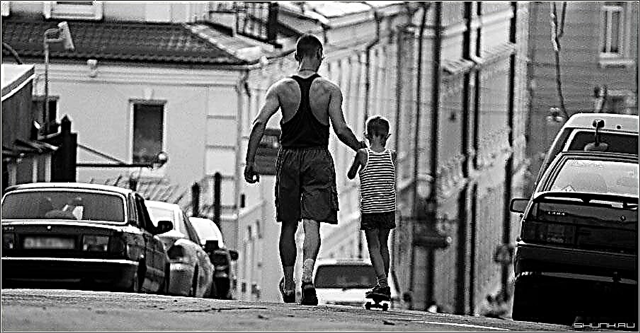
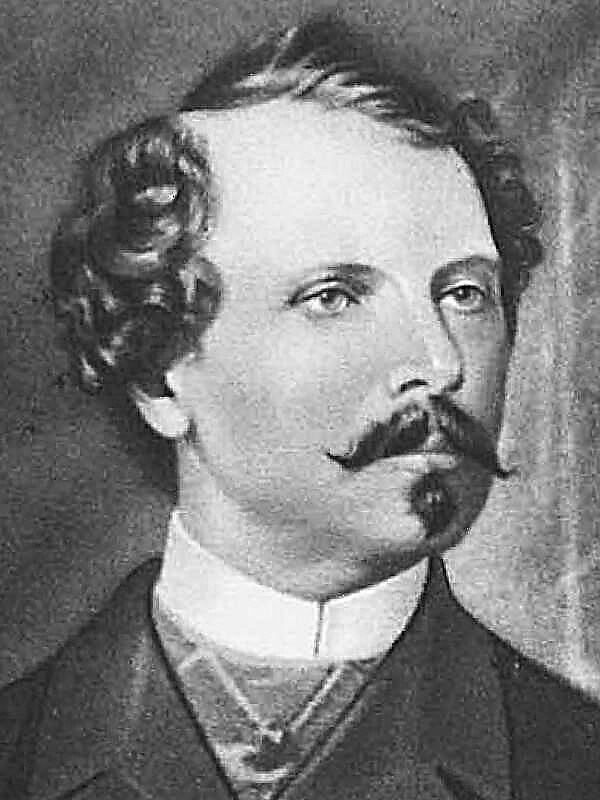
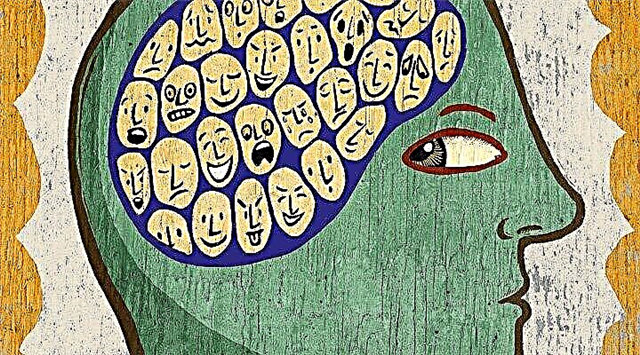 Emotional intellect
Emotional intellect